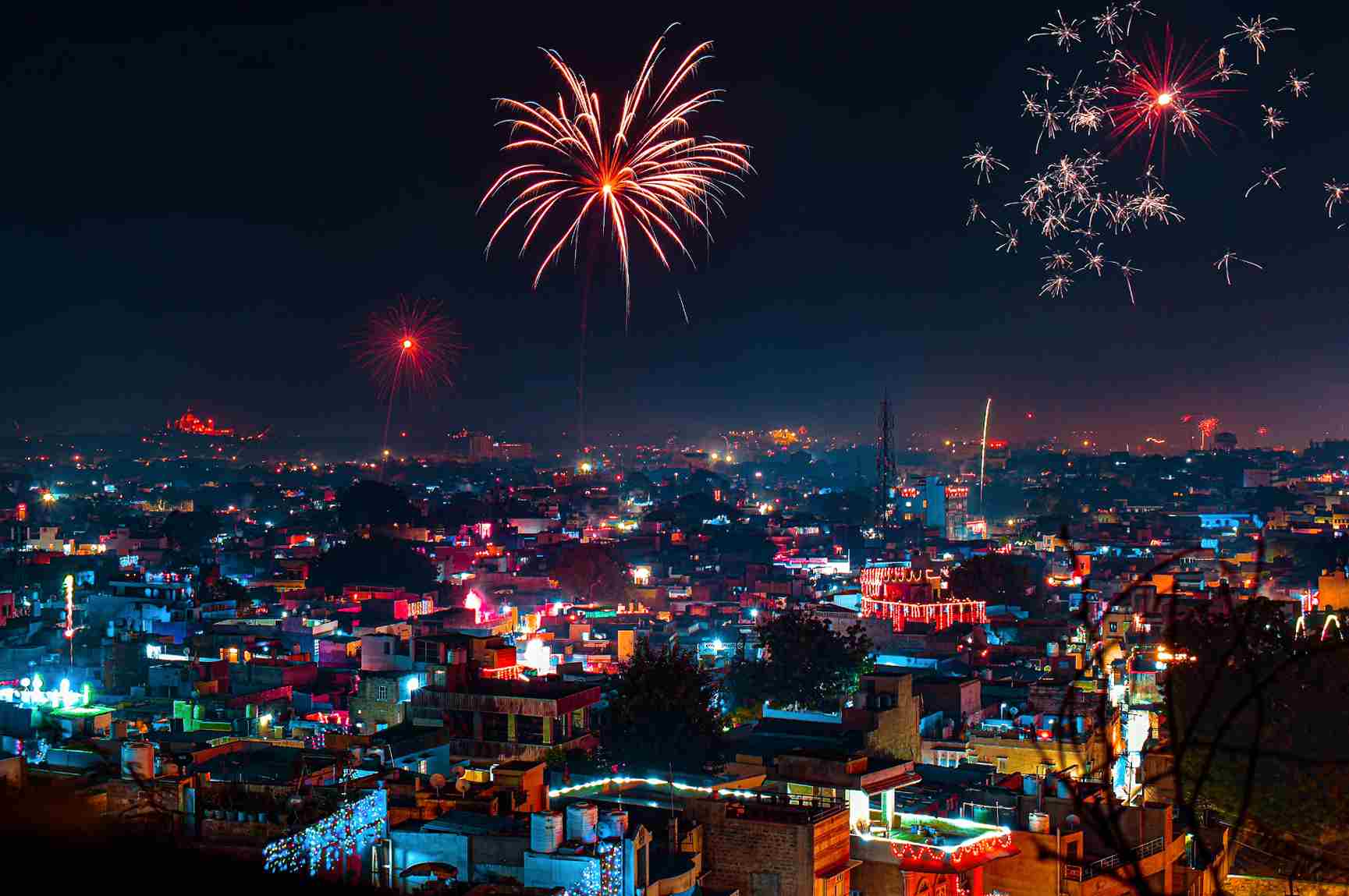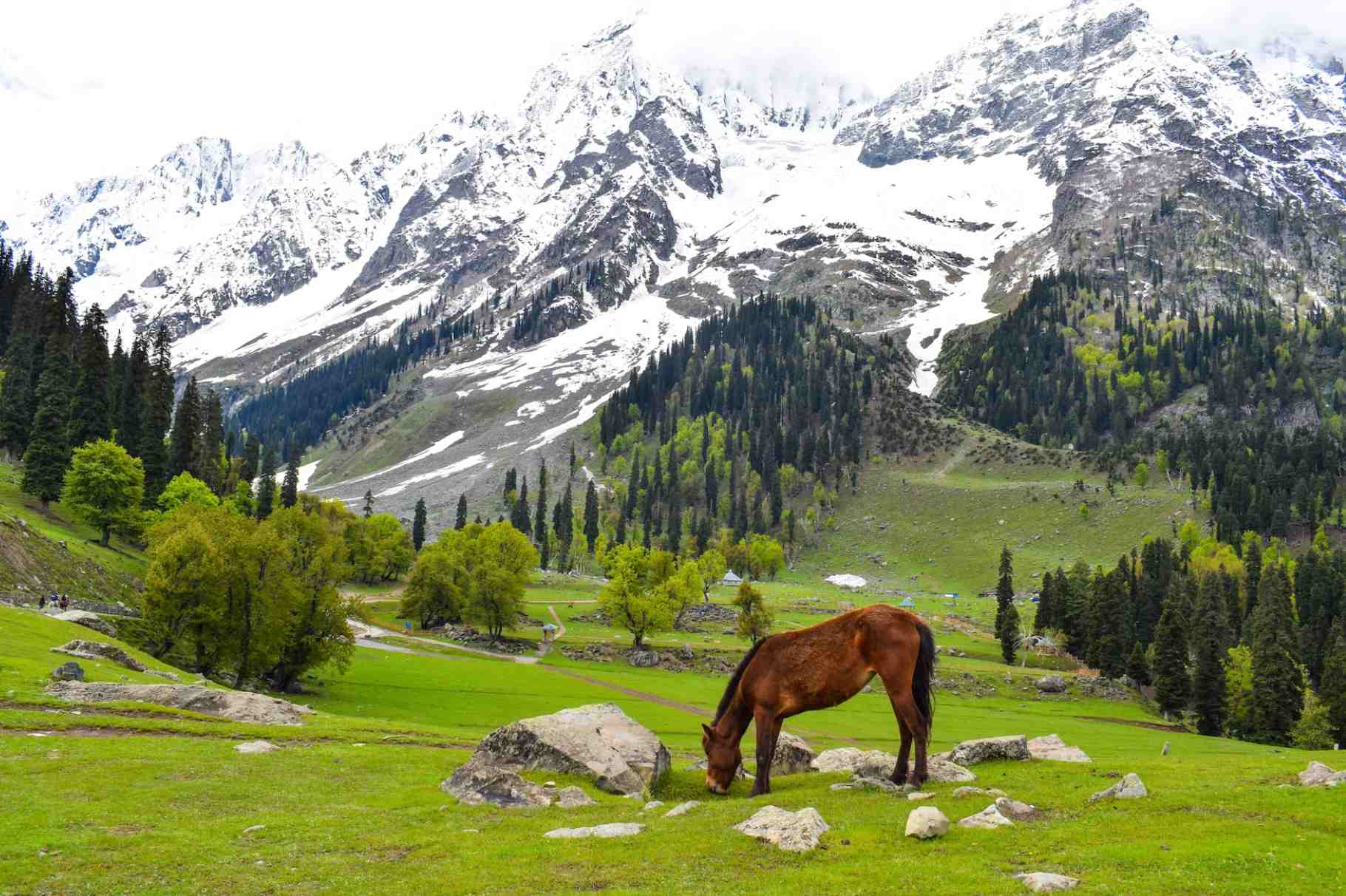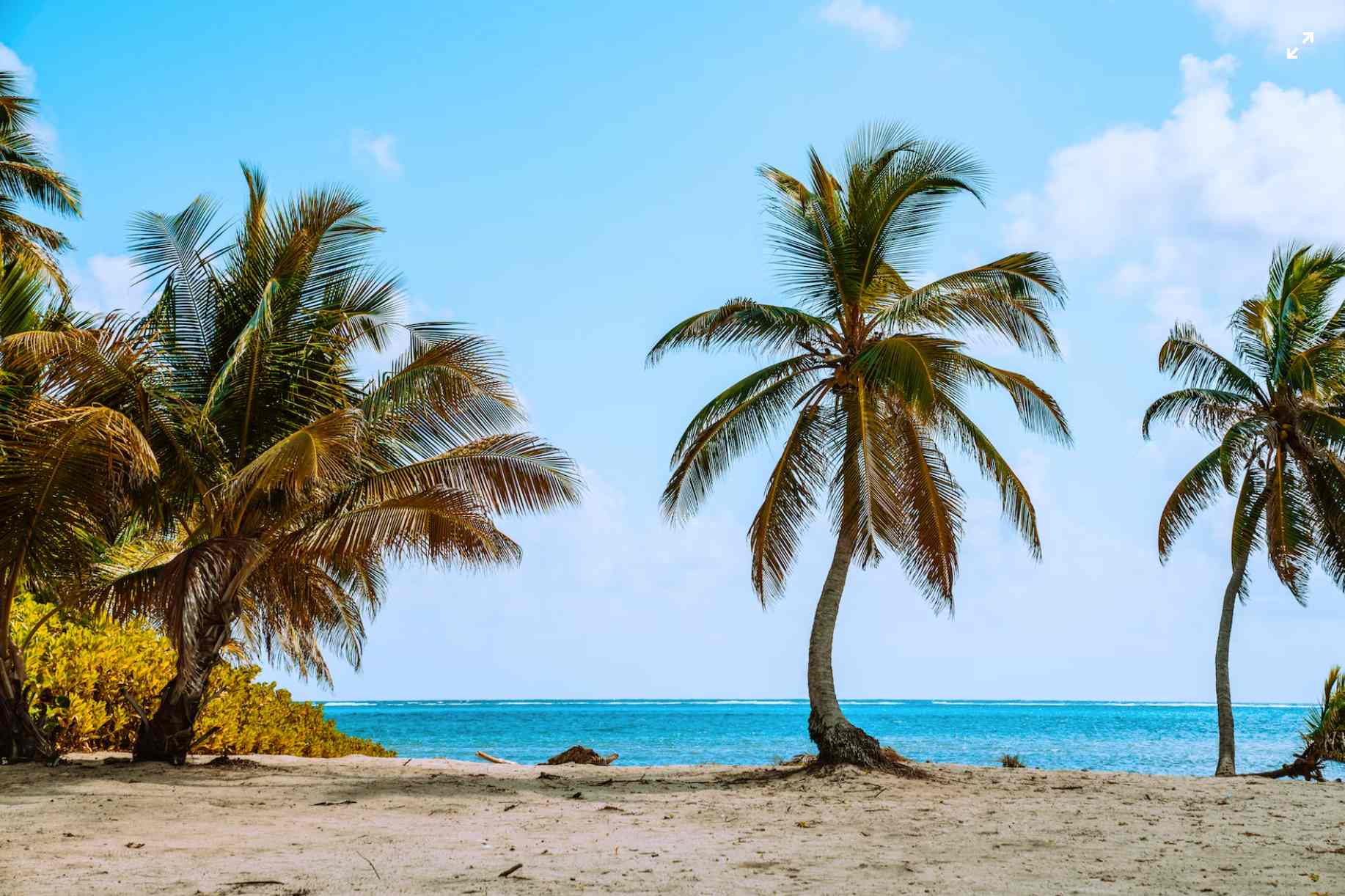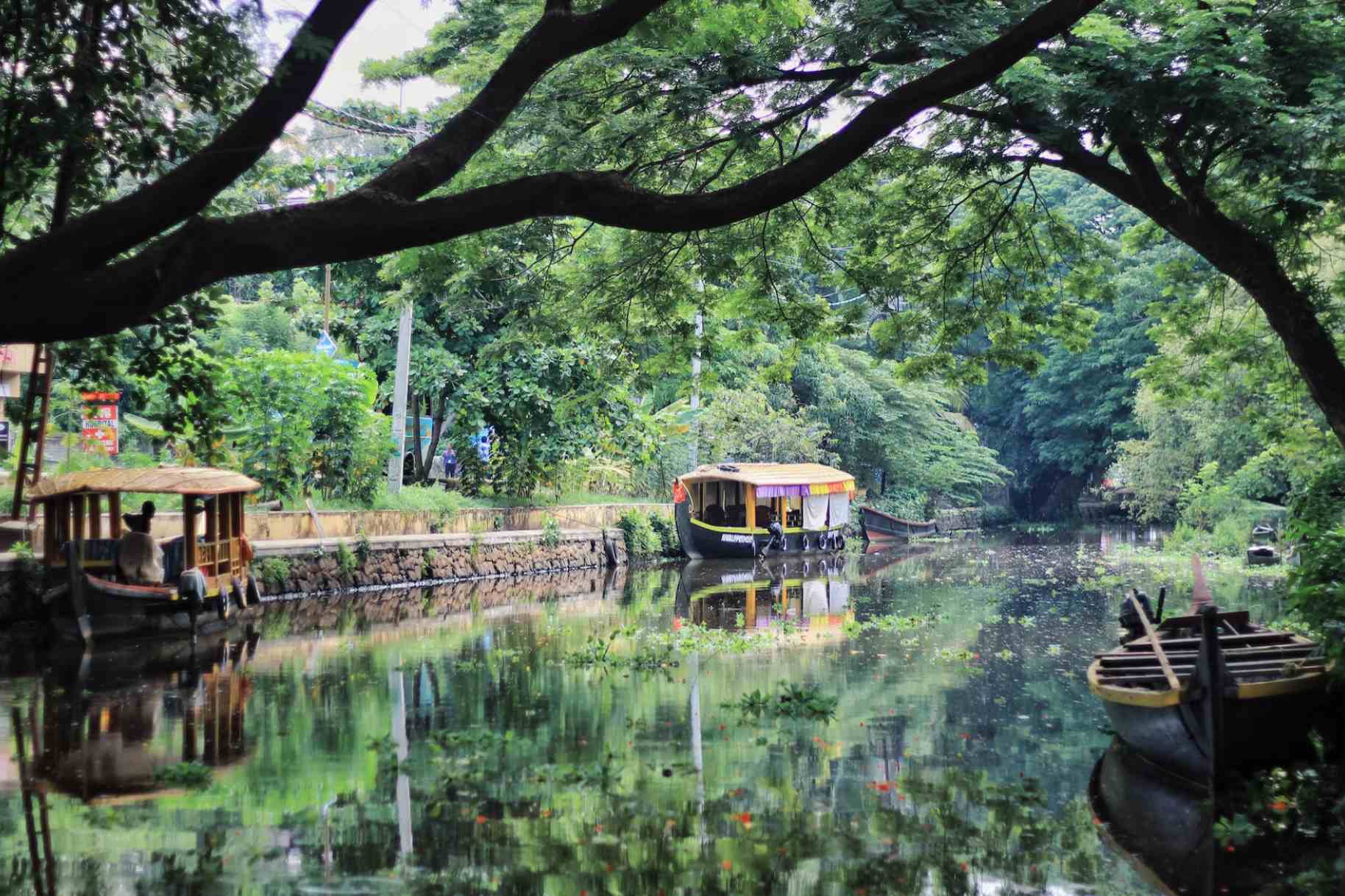Portugal Travel Guide: Here Is Everything You Need To Know
Portugal is a country of captivating contradictions that beckons travellers with its diverse landscapes and rich history. From the majestic rolling mountains that trace the path of the Douro Valley to the evocative remnants of ancient Rome and the enchanting mediaeval cobblestone streets of Porto, all the way to the vibrant and cosmopolitan pulse of Lisbon, Portugal is a European gem that has consistently fascinated visitors from around the world. In the spotlight this year, Portugal is poised to exceed expectations as a must-visit destination. Allow us to guide you through this captivating country, highlighting the best places to explore and providing insights into the ideal times to plan your trip, festivals, cuisines, outdoor adventures as well as when to exercise caution.
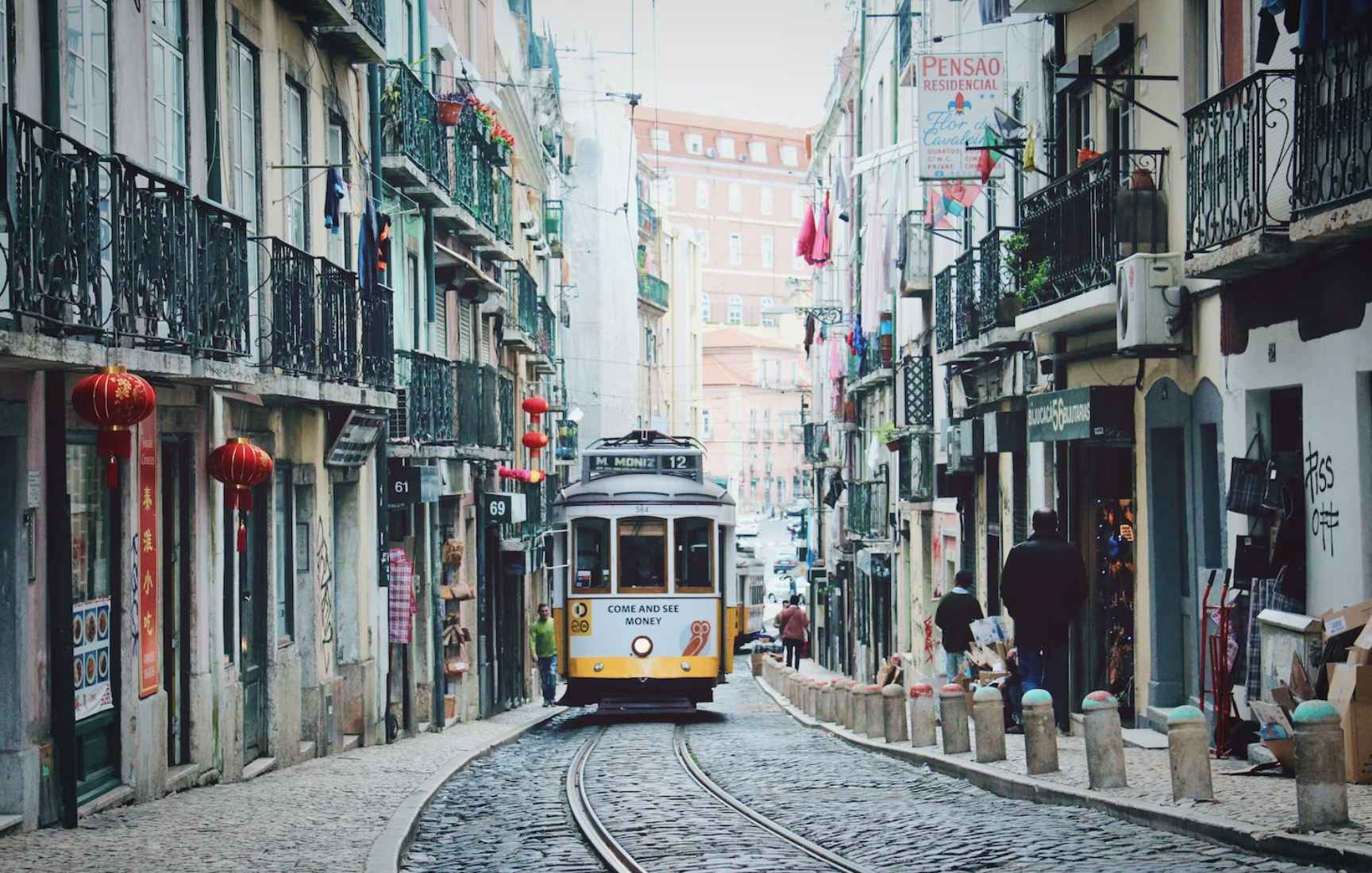
When to Visit Portugal
The best time to visit Portugal largely depends on your preferences and what you want to experience in the country. Here's a breakdown of the seasons and their characteristics to help you plan your trip:
1. Spring (March to May)
Weather: Spring in Portugal is generally mild and pleasant, with temperatures ranging from 15°C to 20°C (59°F to 68°F).
Highlights: This is an excellent time for outdoor activities, exploring cities, and enjoying blooming landscapes. You'll encounter fewer crowds compared to the summer months.
2. Summer (June to August)
Weather: Summers can be hot, especially in inland areas, with temperatures often exceeding 30°C (86°F) in some regions.
Highlights: Beach lovers will enjoy the warm waters of the Atlantic Ocean. Festivals and cultural events are abundant during this season. However, popular tourist destinations can be crowded.
3. Autumn (September to November)
Weather: Autumn is a fantastic time to visit, with mild temperatures ranging from 15°C to 25°C (59°F to 77°F).
Highlights: The grape harvest season in the Douro Valley takes place in September and October. It's a great time for wine enthusiasts. The crowds thin out as summer ends.
4. Winter (December to February)
Weather: Winters in Portugal are generally mild along the coast but can be colder in the interior regions. Temperatures range from 8°C to 16°C (46°F to 61°F).
Highlights: Winter is ideal for exploring cultural sites, enjoying Portuguese cuisine, and experiencing a quieter, more authentic side of Portugal. Coastal cities like Lisbon and Porto are still enjoyable.
The best time to visit Portugal for pleasant weather and fewer crowds is during the shoulder seasons of spring and autumn. Summer is perfect for beachgoers and festival enthusiasts but can be crowded. Winter offers a unique, quieter experience for those interested in culture and cuisine. Be sure to check the specific climate and festival dates for the regions you plan to visit, as weather can vary across the country.
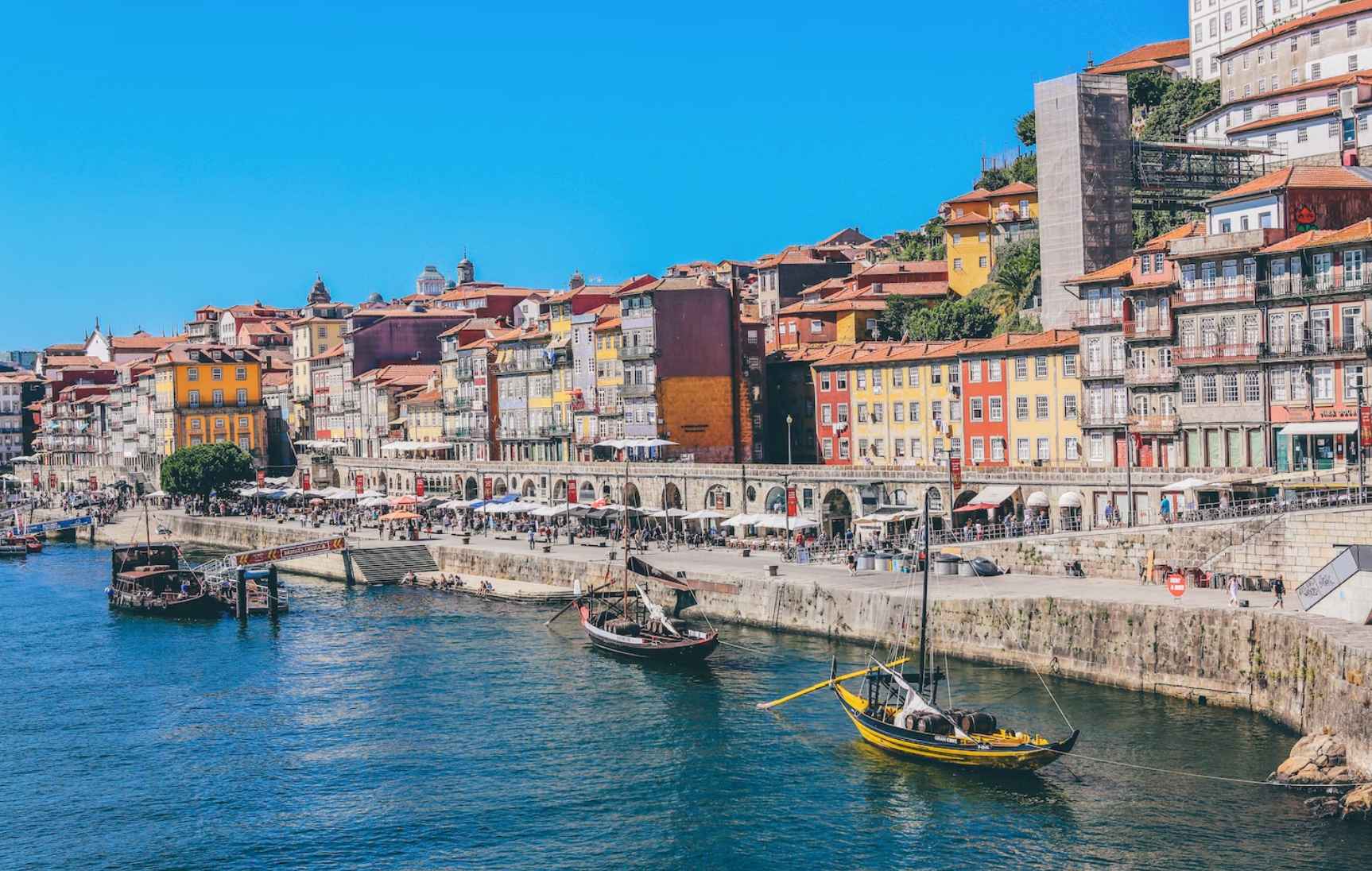
How to Travel to Portugal
Indian citizens need a visa to visit Portugal for tourism purposes. You will need to apply for a Schengen visa if you plan to travel to other Schengen countries while you are in Portugal. You can apply for a Schengen visa at the Portuguese embassy or consulate in India through VFS Global.
The most common way to travel to Portugal is by plane. There are direct flights from major Indian cities to Lisbon, Porto, and Faro. You can also travel to Portugal by train, bus, or ferry.
Best Places to Visit in Portugal
Portugal offers a wealth of stunning destinations to explore. Here are some of the best places to visit in Portugal:
1. Lisbon
Portugal's vibrant capital is known for its historic neighbourhoods, such as Alfama and Bairro Alto, as well as its iconic Belém Tower and Jerónimos Monastery.
Don't miss the colourful tiles (azulejos) adorning many buildings, and enjoy the lively atmosphere of the city's cafes and restaurants.
2. Porto
Porto is famous for its stunning riverfront, historic Ribeira district, and the Porto Wine Cellars in Vila Nova de Gaia.
Explore the charming narrow streets, visit the Livraria Lello bookstore, and savour delicious Portuguese cuisine.
3. Sintra
Sintra is a fairytale-like town known for its palaces and lush gardens. The colourful Pena Palace and the Moorish Castle are must-visit attractions.
Stroll through the town centre and visit Quinta da Regaleira with its mystical tunnels and gardens.
4. Douro Valley
The Douro Valley is renowned for its terraced vineyards along the Douro River. It's a paradise for wine lovers.
Take a river cruise, visit local wineries, and enjoy the breathtaking landscapes.
5. Algarve
The Algarve region boasts stunning beaches, cliffs, and crystal-clear waters. Popular destinations include Lagos, Albufeira, and Faro.
Enjoy water sports, relax on the beaches, and explore charming coastal towns.
6. Évora
Évora is a UNESCO World Heritage-listed city with well-preserved Roman ruins, mediaeval architecture, and a beautiful town square.
Visit the Temple of Diana and the Chapel of Bones (Capela dos Ossos).
7. Coimbra
Coimbra is home to one of Europe's oldest universities, the University of Coimbra. Explore the university's historic library and enjoy the city's rich cultural heritage.
Don't miss the Joanina Library and the Conímbriga Roman ruins nearby.
8. Aveiro
Known as the "Venice of Portugal," Aveiro is famous for its canals and colourful moliceiro boats.
Taste the traditional ovos moles sweets and explore the charming streets.
9. Madeira and the Azores
These Portuguese archipelagos offer stunning natural beauty, including lush landscapes, volcanic craters, and beautiful coastline.
Enjoy outdoor activities such as hiking, whale watching, and exploring unique flora and fauna.
10. Tomar
Tomar is known for the Convent of Christ, a UNESCO World Heritage site, and the Castle of Tomar.
Explore the mediaeval history of the town and its architectural treasures.
These are just a few of the incredible places to visit in Portugal. The country's rich history, diverse landscapes, and warm hospitality make it a top destination for travellers.
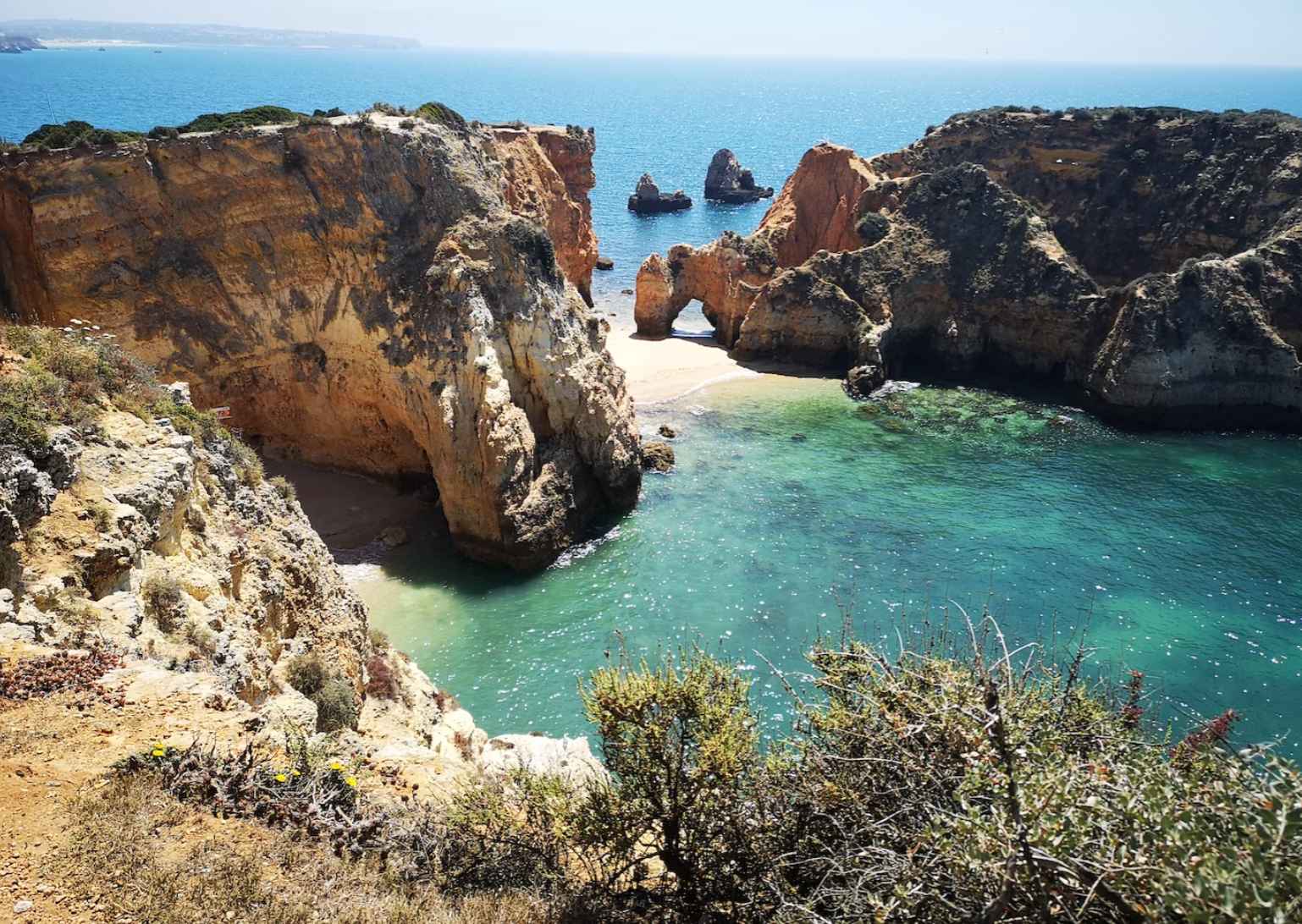
Things to Do in Portugal
Portugal offers a wide range of activities and experiences for travellers. Here are some of the top things to do in Portugal:
1. Explore Historic Cities
Wander through the historic streets of Lisbon and Porto, exploring their charming neighbourhoods, historic landmarks, and vibrant cultural scenes.
2. Visit Iconic Landmarks
Tour iconic landmarks such as the Belém Tower and Jerónimos Monastery in Lisbon, as well as Porto's Ribeira district and Livraria Lello bookstore.
3. Wine Tasting
Enjoy wine tasting in the Douro Valley, known for its world-class Port and Vinho Verde wines. Visit local wineries and savor the flavors of Portuguese wines.
4. Relax on Beaches
Spend time on the beautiful beaches of the Algarve, known for their golden sands, clear waters, and water sports opportunities.
5. Discover Palaces and Castles
Explore the enchanting Pena Palace and the Moorish Castle in Sintra, as well as historic castles like Óbidos Castle and Castle of the Moors.
6. Experience Fado Music
Listen to traditional Fado music in Lisbon's Fado houses and immerse yourself in Portugal's melancholic and soulful musical genre.
7. Sample Portuguese Cuisine
Taste Portuguese specialties like bacalhau (salted codfish), pastéis de nata (custard tarts), and enjoy seafood dishes along the coast.
8. Explore Nature
Hike or bike in the Azores and Madeira archipelagos, home to stunning landscapes, lush forests, and volcanic terrain.
9. Take a River Cruise
Enjoy a leisurely cruise along the Douro River, taking in the picturesque vineyards and landscapes of the Douro Valley.
10. Visit Roman Ruins
Explore well-preserved Roman ruins in places like Évora and Conímbriga, offering a glimpse into Portugal's ancient history.
11. Attend Festivals
Experience Portugal's lively festivals, such as Carnival, São João in Porto, and the Fado Festival in Lisbon, and the Boom Festival in Idanha-a-Nova among others.
12. Discover Island Adventures
Engage in outdoor activities like hiking, canyoning, and whale watching on the islands of Madeira and the Azores.
13. Relax at Thermal Springs
Unwind in Portugal's thermal springs and spas, like Caldas da Rainha or Furnas in the Azores.
14. Visit UNESCO Sites
Explore UNESCO World Heritage Sites, including the Tower of Belém, the Monastery of Batalha, and the Historic Centre of Oporto.
15. Engage in Water Sports
Try surfing, windsurfing, and kayaking along Portugal's coastline, known for excellent conditions for water sports.
16. Take a cooking class
Portuguese food is delicious. You can take a cooking class and learn how to make some of the country's signature dishes.
17. Go surfing
Portugal is a great place to go surfing. There are many good surfing spots in the country, including the Algarve and the Azores.
18. Carnival
The Carnival in Lisbon is one of the biggest and most popular carnivals in Europe. It takes place in February or March and features parades, street parties, and costumes.
19. Boom Festival
An internationally renowned psychedelic music and arts festival that takes place near the town of Idanha-a-Nova in central Portugal. It is one of the most prominent and iconic bi-annual festivals in the global psychedelic and electronic music scene. It is one of the biggest psytrance festivals in the world.
How much will it Cost to travel to Portugal from india
The cost of travelling from India to Portugal can vary widely depending on various factors, including your travel preferences, duration of stay, type of accommodation, activities, and the time of year you visit. To give you a rough estimate, here's a breakdown of some typical expenses in Indian Rupees (INR) for a mid-range trip:
1. Flights
Round-trip flights from major Indian cities to Lisbon or Porto can cost anywhere from INR 60,000 to INR 1,00,000 or more, depending on the airline, time of booking, and travel class.
2. Accommodation
Mid-range hotels in Portugal may cost around INR 4,000 to INR 8,000 per night.
Budget travellers can find hostels or guesthouses for approximately INR 2,000 to INR 4,000 per night.
3. Food
Dining at mid-range restaurants may cost around INR 1,500 to INR 2,500 per person per day.
Street food and casual dining options can be more budget-friendly, with meals costing around INR 500 to INR 1,500 per person per day.
4. Transportation
Local transportation costs within Portugal, such as metro or bus fares, can vary by city but are generally affordable.
Renting a car may cost around INR 3,000 to INR 5,000 per day, depending on the vehicle type and rental agency.
5. Activities
Entrance fees to museums and attractions may range from INR 500 to INR 1,500 per visit.
Excursions, tours, and outdoor activities may have varying costs, depending on the activity.
6. Miscellaneous
Budget for miscellaneous expenses like SIM cards, souvenirs, and personal items.
Keep in mind that these are approximate costs, and actual expenses can vary based on your travel style and preferences. Additionally, currency exchange rates can fluctuate, impacting the conversion of INR to Euros (Portugal's currency). It's always a good idea to research current prices and plan your budget accordingly.
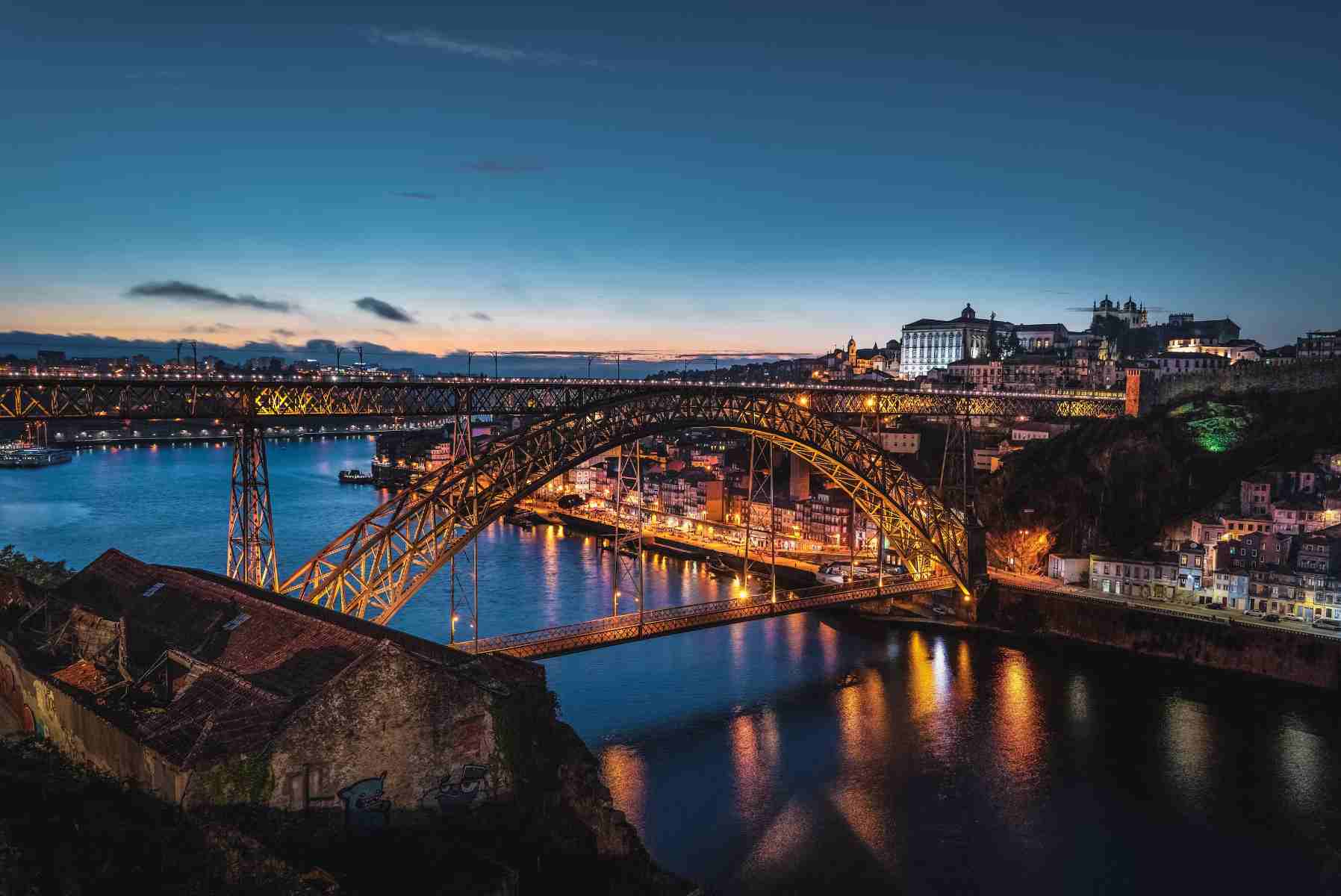
Frequently Asked Questions (FAQs) for a trip to Portugal from India
1. Do I Need a Visa to Visit Portugal?
Answer: Yes, Indian passport holders typically require a Schengen visa to visit Portugal for tourism or other non-business purposes. You should apply for this visa at the Portuguese Embassy or Consulate in India. Ensure you apply well in advance of your travel dates, as visa processing times can vary.
2. What's the Best Time to Visit Portugal?
Answer: The best time to visit Portugal depends on your preferences. Spring (March to May) and autumn (September to November) offer pleasant weather with milder temperatures and fewer crowds. Summer (June to August) is ideal for beachgoers, while winter (December to February) provides a quieter, more cultural experience.
3. What's the Currency Used in Portugal?
Answer: Portugal uses the Euro (EUR) as its official currency. It's advisable to exchange some currency before your trip or withdraw Euros from ATMs in Portugal for convenience.
4. Is English Spoken in Portugal?
Answer: While Portuguese is the official language, English is widely spoken, especially in tourist areas, hotels, restaurants, and among younger generations. It's helpful to learn a few basic Portuguese phrases for polite communication.
5. What Are the Must-Visit Places in Portugal?
Answer: Portugal offers numerous must-visit destinations, including Lisbon, Porto, Sintra, the Douro Valley, the Algarve, Évora, Coimbra, Aveiro, and the islands of Madeira and the Azores.
6. What Are the Famous Portuguese Dishes to Try?
Answer: Don't miss trying Portuguese specialties like bacalhau (salted codfish), pastéis de nata (custard tarts), seafood rice, francesinha (sandwich), and the famous Portuguese wines, including Port and Vinho Verde.
7. Are There Any Health Precautions for Travelers?
Answer: Portugal generally has good healthcare facilities. It's advisable to have travel insurance that covers medical expenses, including COVID-19-related coverage. Carry any necessary prescription medications and be aware of local COVID-19 protocols during your visit.
8. What Should I Pack for My Trip to Portugal?
Answer: Pack weather-appropriate clothing, comfortable walking shoes, a power adapter for European plugs, sunscreen, and any necessary travel documents, including your passport and visa.
9. Is Tipping Common in Portugal?
Answer: Tipping is appreciated but not mandatory. In restaurants, it's common to leave a tip of around 5% to 10% of the bill. In cafes and for other services, rounding up the bill or leaving small change is customary.
10. How Do I Get Around in Portugal?
Answer: Portugal has an extensive public transportation system, including buses and trains. In cities like Lisbon and Porto, there are metro systems and trams. Renting a car is also an option if you plan to explore more remote areas.
11. Is it safe to travel to Portugal?
Answer: Portugal is generally considered a safe destination for travellers. It has a low crime rate, and violent crimes against tourists are rare. However, like any other destination, it's essential to take standard safety precautions to ensure a trouble-free trip.
12. Is Portugal cheap or expensive?
Answer: Portugal is generally considered a budget-friendly destination for travellers. While luxury options are available, affordable accommodation, reasonably priced meals, and cost-effective transportation make it accessible to various budgets. Enjoying Portuguese cuisine and exploring the country's attractions can be done without breaking the bank, making Portugal an attractive and relatively inexpensive travel destination.
These FAQs should provide you with essential information to plan your trip to Portugal. However, always check for the latest travel advisories and entry requirements before your journey.











